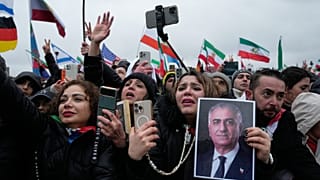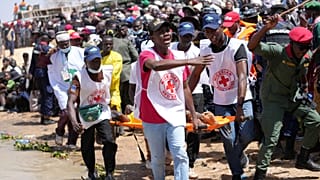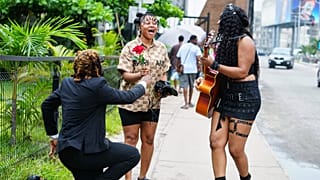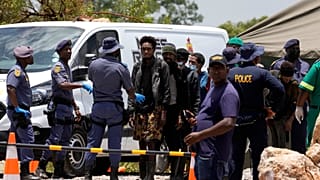Political crisis
The Guinean opposition last Saturday, March 28, rejected the result of a constitutional referendum, which they fear will be used by President Alpha Conde to extend his grip on power.
The proposal to change the constitution was hugely controversial in the West African state, spurring mass demonstrations in which at last 32 people have been killed, according to an AFP tally.
The FNDC, an umbrella opposition group, had called for a boycott of the referendum and rejected the result outright. “We will not recognize any institution resulting from this masquerade, nor will we recognize this new Constitution of Mr. Alpha Condé.
“We remain and will remain behind the May 2010 constitution which sets the number of mandates at two and which also gives the right to the people of Guinea to resist oppression,” an FNDC leader said.
The Independent National Electoral Commission president, Amadou Salifou Kebe, told reporters on Friday that 91.59 percent of ballots were in favour of adopting the new constitution, while 8.41 percent were against, following the March 22 vote.
The day of the vote was marred by violence, with scores of polling stations ransacked across the country and, according to the country’s political opposition, dozens were killed.
Guinea is currently under a state of emergency which was declared by President Conde days after the referendum vote. The move was part of a measure to contain the spread of coronavirus pandemic. The country currently has 16 confirmed cases.












01:40
Uproar in Zimbabwe over cabinet plan to extend president's rule to 2030
00:59
Zimbabwe cabinet agrees plan to extend president's term to 2030
01:06
Guinea's junta leader Mamadi Doumbouya sworn in as president
01:00
Thousands in Sofia protest for fair elections and government resignation
01:04
Doumbouya supporters celebrate Guinea election win
01:00
Bulgarian protests continue, citizens demand end to corruption and fair judiciary